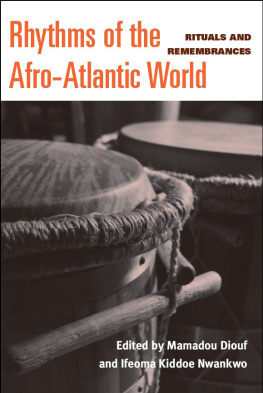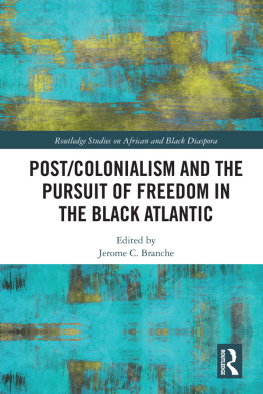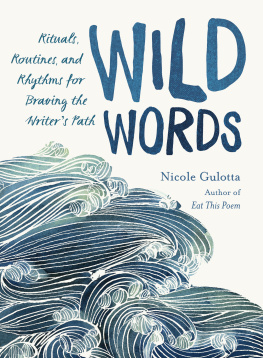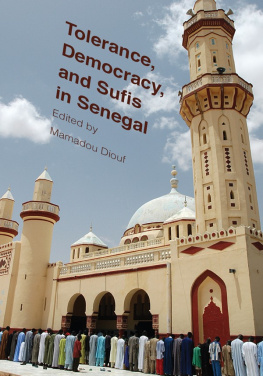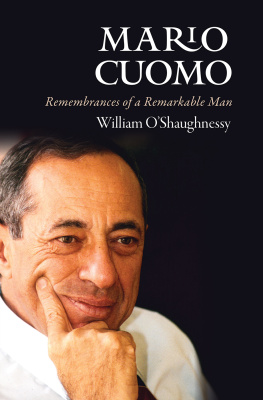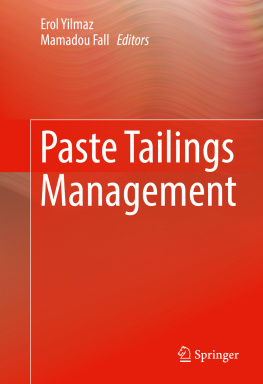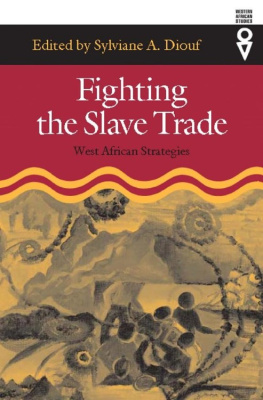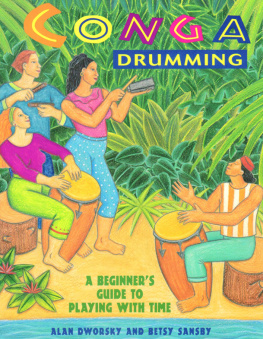Diouf Mamadou - Rhythms of the Afro-Atlantic World: Rituals and Remembrances
Here you can read online Diouf Mamadou - Rhythms of the Afro-Atlantic World: Rituals and Remembrances full text of the book (entire story) in english for free. Download pdf and epub, get meaning, cover and reviews about this ebook. year: 2018, publisher: The University of Michigan Press, genre: Romance novel. Description of the work, (preface) as well as reviews are available. Best literature library LitArk.com created for fans of good reading and offers a wide selection of genres:
Romance novel
Science fiction
Adventure
Detective
Science
History
Home and family
Prose
Art
Politics
Computer
Non-fiction
Religion
Business
Children
Humor
Choose a favorite category and find really read worthwhile books. Enjoy immersion in the world of imagination, feel the emotions of the characters or learn something new for yourself, make an fascinating discovery.
- Book:Rhythms of the Afro-Atlantic World: Rituals and Remembrances
- Author:
- Publisher:The University of Michigan Press
- Genre:
- Year:2018
- Rating:3 / 5
- Favourites:Add to favourites
- Your mark:
- 60
- 1
- 2
- 3
- 4
- 5
Rhythms of the Afro-Atlantic World: Rituals and Remembrances: summary, description and annotation
We offer to read an annotation, description, summary or preface (depends on what the author of the book "Rhythms of the Afro-Atlantic World: Rituals and Remembrances" wrote himself). If you haven't found the necessary information about the book — write in the comments, we will try to find it.
Diouf Mamadou: author's other books
Who wrote Rhythms of the Afro-Atlantic World: Rituals and Remembrances? Find out the surname, the name of the author of the book and a list of all author's works by series.
Rhythms of the Afro-Atlantic World: Rituals and Remembrances — read online for free the complete book (whole text) full work
Below is the text of the book, divided by pages. System saving the place of the last page read, allows you to conveniently read the book "Rhythms of the Afro-Atlantic World: Rituals and Remembrances" online for free, without having to search again every time where you left off. Put a bookmark, and you can go to the page where you finished reading at any time.
Font size:
Interval:
Bookmark:

Rituals and Remembrances
EDITED BY
MAMADOU DIOUF AND
IFEOMA KIDDOE NWANKWO
The University of Michigan Press
Ann Arbor
Copyright by the University of Michigan 2010
All rights reserved
Published in the United States of America by
The University of Michigan Press
Manufactured in the United States of America Printed on acid-free paper
Printed on acid-free paper
2013 2012 2011 2010 4 3 2 1
No part of this publication may be reproduced, stored in a retrieval system, or transmitted in any form or by any means, electronic, mechanical, or otherwise, without the written permission of the publisher.
A CIP catalog record for this book is available from the British Library.
Library of Congress Cataloging-in-Publication Data
Rhythms of the Afro-Atlantic world : rituals and remembrances / edited
by Mamadou Diouf and Ifeoma Kiddoe Nwankwo.
p. cm.
Includes bibliographical references and index.
ISBN 978-0-472-07096-1 (acid-free paper)
1. Popular musicCaribbean areaHistory and criticism. 2. Blacks
Caribbean areaMusicHistory and criticism. 3. DanceCaribbean
areaHistory. 4. Hip-hopAfrica. I. Diouf, Mamadou. II. Nwankwo,
Ifeoma Kiddoe.
ML3486.A1R49 2010
780.89'6dc22 2010004464
eISBN :978-0-472-02747-7 (e-book)
MAMADOU DIOUF AND IFEOMA KIDDOE NWANKWO
Located simultaneously inside and outside Western modernities and aesthetics, Afro-Atlantic peoples have used music and dance to continually represent and reinvent their multiple bases of identityphysically, emotionally, and intellectually.
Along with linked modes of religiosity, music and dance have also figured prominently in scholars approaches to documenting the results of the multidimensional cultural contact brought about by the Atlantic slave trade. The focus of pioneers like Fernando Ortiz on these genres was not a coincidence but, rather, a recognition of the fact that Afro-Atlantic music and dance simultaneously carry history and memory within them and show the ways communities have blended past with present realities, yielding wholly new cultures. Widely considered to be the most visible contributions of African-descended communities to the making of the Atlantic world, music and dance have been identified, along with orality, not only as the main modes of occurrence and dissemination in the world of black culture but also as linked channels of black expressivity and presence in the world scene.
This unique collection of essays connects nations from across the AtlanticSenegal, Kenya, Trinidad, Cuba, Brazil, and the United States, among othershighlighting contemporary popular, folkloric, and religious music and dance as living evidence of the ironically productive potential of this age of consumerist globalization, especially for Afro-Atlantic artists and communities. In this most recent era of financially driven flows of culture and peoples within and among the nations of the Atlantic, Afro-Atlantic music and dance have become prime commodities. As economic commodities they fatten the bank accounts of multinational media companies and well-positioned artists. As cultural commodities they are employed by individuals and communities to craft cultural and ideological weapons for their battles against colonialism and neocolonialism, governmental corruption, and the inequalities created and perpetuated by the same multinational/mercantile system that makes this transnational weaponry possible. Religion and religious cultural products are key commodities in the contemporary moment of globalization, commodities that inspire, illuminate, and disseminate approaches to defining and enacting community and citizenship. Along with secular music and dance, these traveling consumer products are constitutive elements of Afro-Atlantic communities perceptions, expressions, and enactments of conceptions of identity, often even when they appear to be wholly local. As such, they exemplify what can be usefully termed globalization creolization.
By tracking the continuous reframing, revision, and erasure of aural, oral, and corporeal traces, the contributors to Rhythms of the Afro-Atlantic World collectively argue that music and dance are living indices of a constant (re)composition and (re)mixing of local sounds, gestures, epistemologies, and memories. These multiple and intersecting itineraries are transformed by continuous movements across time and geography, becoming at once more local and more transnational while also representing African and diasporic communities economies of knowledge about the Atlantic worldparticularly around issues of citizenship, consumerism, and the social and political mission of arts and artists.
Scholars have long sought to map the circuits of Afro-Atlantic music and dance, tracing the travels and revisions of specific sounds, forms, and gestures Page 3 among sites. With regard to the role of drums brought along (by slaves) from the African coast, is ample evidence of this perception.
This valuing is not new. Building on Frederick Douglass's identification of the magnetic and soul-stirring power of the sorrow songs, as he termed them, who are interested in the connection to African forms and/or the transforming effect of colonial musical influence. Music and dance have been used to restore the sense of humanity and rootedness that slavery took away, while participating very powerfully in their reconfiguration and reinvention by modernist traditions.
Edouard Glissant, by adding the gift of speech [orality] gesture and dance Page 4 as forms of communication
Paul Gilroy's The Black Atlantic: Modernity and Double Consciousness is credited by many scholars with inspiring a vibrant discourse on the narratives of selfhood, community, and race embedded in the cultural products born of the movement of people of African descent throughout the Atlantic. He attempts to account for the place of music in modern black culture, affirming it a privileged place in diaspora cultures through the interactions of the performers and the audiences, and the intimate relationships to modernity, beyond ethnically coded dialogue. In addition to explicating the Atlantic dimensions of the work of intellectuals such as W. E. B. Du Bois, Richard Wright, and Martin Delany, Gilroy sought to pay particular attention to the import of the creations of musical artists such as Soul II Soul. Houston Baker, in Modernism and the Harlem Renaissance, explores how music and certain black vernacular oral expressions are inscribed in African American literary works, in particular how certain sounds are replayed in literary artifacts. The work of music historians Page 5 and musicologists such as Robert Bennett, Ingrid Morrison, Elijah Wald, and Alexander G. Weheliye also reveals an increasing attentiveness to the musical products of the Black Atlantic. New approaches in literary as well as in music and dance studies are attempting to attend to the complexities of the transactions between instruments (including the body and the technology of production and dissemination of music), sites of performance, innovations and repetitions, audience, and commodification, as well as the politics of music and dance in different regions of the Atlantic. Much of the work, particularly that published by major presses, has centered on U.S. African American music or Cuban music and, to a lesser degree, on African, British Caribbean, and non-Cuban Latino/Latin American music. Nevertheless, lacunae remain, particularly in terms of religious/ritual/spiritual music. In addition, monographs published on other forms of music are often nationally bounded.
Font size:
Interval:
Bookmark:
Similar books «Rhythms of the Afro-Atlantic World: Rituals and Remembrances»
Look at similar books to Rhythms of the Afro-Atlantic World: Rituals and Remembrances. We have selected literature similar in name and meaning in the hope of providing readers with more options to find new, interesting, not yet read works.
Discussion, reviews of the book Rhythms of the Afro-Atlantic World: Rituals and Remembrances and just readers' own opinions. Leave your comments, write what you think about the work, its meaning or the main characters. Specify what exactly you liked and what you didn't like, and why you think so.

